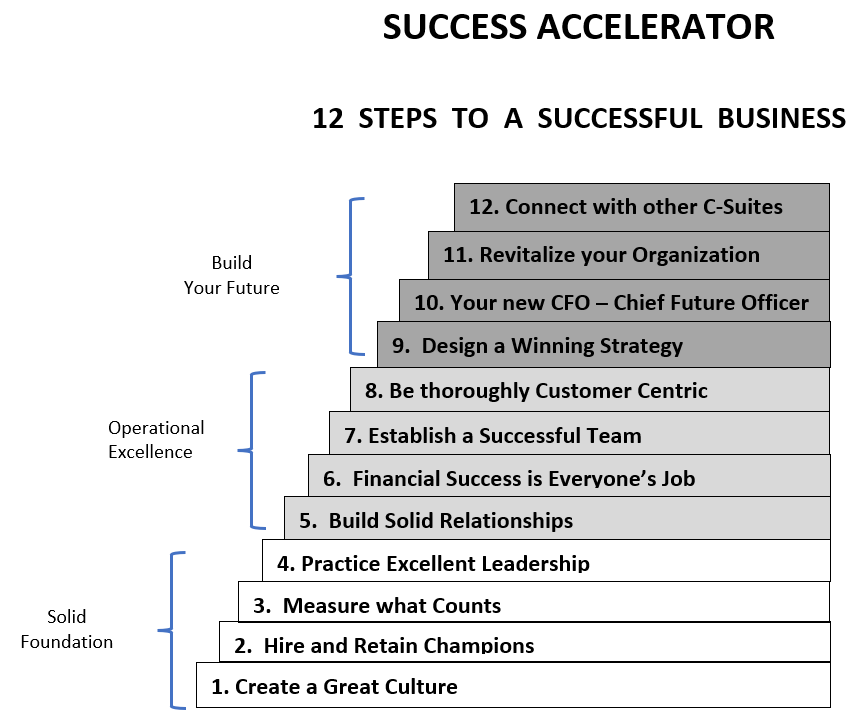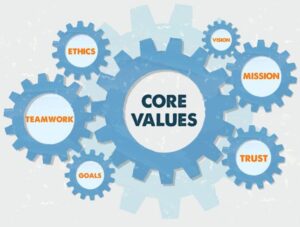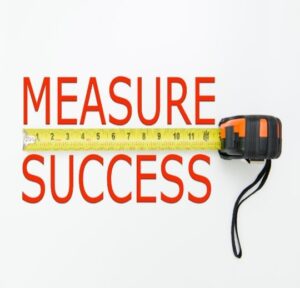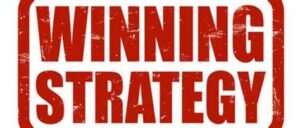Success Accelerator

The Appleton Greene Corporate Training Program (CTP) for Success Accelerator is provided by Mr. Stolz Certified Learning Provider (CLP). Program Specifications: Monthly cost USD$2,500.00; Monthly Workshops 6 hours; Monthly Support 4 hours; Program Duration 12 months; Program orders subject to ongoing availability.

Personal Profile
Mr. Stolz is an approved Senior Consultant at Appleton Greene and he has experience in management, finance, operations, and marketing. He has achieved a Master of Business Administration, an MS in Engineering Management, and a BA in Accounting and Finance. He has industry experience within the following B2B sectors: Automotive; Construction; Consultancy; Distribution, Engineering, Financial Services, Industrial Automation, Industrial Services, Machinery + Equipment Manufacturing, Medical Instruments and Supplies, Software Development, Steel Fabrication + Steel Processing, and Energy Services. He has had commercial experience within the following countries: United States of America and Germany, or more specifically within the following cities: Houston / Texas; Dallas / Texas, Chicago / Illinois, Atlanta / Georgia, and Munich / Germany. His personal achievements include turnaround & corporate restructuring; revitalizing companies, cash flow improvement programs; profit acceleration programs; aggressive growth planning & execution, and leadership coaching & mentoring.
To request further information about Mr. Stolz through Appleton Greene, please Click Here.
(CLP) Programs
Appleton Greene corporate training programs are all process-driven. They are used as vehicles to implement tangible business processes within clients’ organizations, together with training, support and facilitation during the use of these processes. Corporate training programs are therefore implemented over a sustainable period of time, that is to say, between 1 year (incorporating 12 monthly workshops), and 4 years (incorporating 48 monthly workshops). Your program information guide will specify how long each program takes to complete. Each monthly workshop takes 6 hours to implement and can be undertaken either on the client’s premises, an Appleton Greene serviced office, or online via the internet. This enables clients to implement each part of their business process, before moving onto the next stage of the program and enables employees to plan their study time around their current work commitments. The result is far greater program benefit, over a more sustainable period of time and a significantly improved return on investment.
Appleton Greene uses standard and bespoke corporate training programs as vessels to transfer business process improvement knowledge into the heart of our clients’ organizations. Each individual program focuses upon the implementation of a specific business process, which enables clients to easily quantify their return on investment. There are hundreds of established Appleton Greene corporate training products now available to clients within customer services, e-business, finance, globalization, human resources, information technology, legal, management, marketing and production. It does not matter whether a client’s employees are located within one office, or an unlimited number of international offices, we can still bring them together to learn and implement specific business processes collectively. Our approach to global localization enables us to provide clients with a truly international service with that all important personal touch. Appleton Greene corporate training programs can be provided virtually or locally and they are all unique in that they individually focus upon a specific business function. All (CLP) programs are implemented over a sustainable period of time, usually between 1-4 years, incorporating 12-48 monthly workshops and professional support is consistently provided during this time by qualified learning providers and where appropriate, by Accredited Consultants.
Executive summary

Success Accelerator
Everyone wants to be a success. But only a few achieve it. What is the secret? What does it take? This training series reveals where you need to focus to create a successful organization. It is not complicated when you know where to concentrate your resources and how to build a successful business. It is like learning how to ride a bicycle. It is scary at the beginning, but it becomes easy when you know what to do, how to keep your balance, how to pay attention to your movements, etc. It all becomes second nature, and it gets easier over time.
There are only twelve important steps for building a successful business:
1. Create a Great Culture.
2. Hire and Retain Champions.
3. Measure what Counts.
4. Practice Excellent Leadership.
5. Build solid Relationships – Master your people skills.
6. Financial Success is everyone’s job.
7. Establish a Successful Team.
8. Be thoroughly Customer Centric
9. Design a Winning Strategy
10. Your New CFO – Chief Future Officer
11. Revitalize your Organization.
12. Connect with other C-Suites
Although each of these is a stand-alone program, combining these twelve steps into one curriculum gives you one clearly defined direction. Your probability of triumph and victory is greatly enhanced by following these twelve proven steps to success.



1. Create a Great Culture
Culture Success
Culture is the foundation of everything.
Every organization has a set of cultural values. Some corporate cultures are great, and some are less than mediocre. Without a great culture, your Business may never reach its full potential. A healthy culture has been proven to have more engaged employees, higher profits, faster growth, increased productivity, greater innovation, and lower employee turnover.
This session reveals what is important and how you can create a great culture in your organization. A great culture has four major components: Mission, Vision, Core Beliefs (Customer Centric), Your People. All four must be created and adhered to in a harmonious manner throughout the organization. Do your employees know these four CORNERSTONES very well and – more importantly – do you and your employees embrace and pursue those four components?
Having clear vision and mission statements that outline the purpose of your organization and the direction of your business helps to align the efforts of the team towards a common goal.
“A great culture eats strategy for breakfast.” Jim Collins, the management guru, made this statement years ago and it is still true and valid today!
If you do not design, implement, and continuously nurture a specific and clearly defined culture, you will – by default – have a culture that is a mess, confusing to most people, and without a rudder or direction. If the leadership does not design a specific culture, other people will design it for themselves, and it will most likely not be a harmonious or a well-balanced culture.
Culture is not something you are – it is something you do. No matter how small or big your organization is, this session can teach you the principles of a great culture that transforms your people into great teams that can accomplish amazing results together. They will work smarter together and create results that are far better than the sum of each person.
A great culture is like a solid foundation of a big building. It must be solid, strong, enduring, and prevailing. Without a solid foundation, no building will stand up for long – it is like constructing a building on quicksand. The same principle is found in every successful organization: a strong culture is essential and a prerequisite for a successful business.
The four pillars of a great corporate culture can be summarized as follows:
1. Your Mission: What is the purpose of your business? Why are you in business? (Do not tell me it is money!) What specific problems do you solve for your customers and prospects? What opportunities do you create for your customers and prospects?
2. Your Vision: Where does your organization aim to go and how do you get there? What are your goals, strategies, and priorities? What does your business look like in 5 or 10 years?
3. Your Core Beliefs: Create a highly focused Customer-Centric Organization. What is your main focal point? If your business is not highly Client-driven, you may never be a great Organization.
4. Your People: Do you really treat and treasure your people as the only important assets? What are your values, behaviors, and attitudes you desire or will not tolerate? What are your team’s operating principles? Do you have a clearly defined set of conducts? Do you hold everyone accountable to adhere to your values? What are your recognition programs? What is your Performance Management System? Are you operating fairly or not so? Do you have a clearly designed employee development initiative in place? What about continuous learning programs for all? How are your communication channels? These and many more important points are the core of how you nurture your people. Take care of your people and they will take care of your business!

2. Hire and Retain Champions
Hire Success
Only recruit top-notch people
Every successful organization has great people. Your only genuinely great assets are your top-notch people. This lesson will show you how to recruit and keep the best, Class A and Class B people. You have a much greater chance to be a success story when you follow the advice: attract and retain the best. An organization with few or zero Class A / Class B people has an extremely low chance of success.
Having a highly talented and committed team that is passionate about the business’s mission and values can help drive success and growth.
Seventy percent of your success is based on having the right people in the right place in combination with the right culture. Finding and keeping the right people, putting them in the right job position, listening to them, and eliminating what holds them back is a recipe for success. Only with excellent people will your business have a chance to thrive and succeed.
If you do nothing else in your business, make sure you hire and retain top-notch people. This single recipe is by far the most important part of your success.
But how do you find and how do you interview champions? How do you spot them to be the right fit in your culture? What specific things are a red flag or a green flag? Do you hire people based on some gut feeling? What specific questions do you have for the right candidates? How do you measure and compare one candidate against all the others? What specific accomplishments do you expect from your candidate? What specific behavior style would be a good match or a bad match with your culture – regardless of the technical qualifications of a candidate? Where are compromises not acceptable? What behavior style or personality type is a good match for which job? Are technical skills and job experience the only criteria you are looking for? How do you evaluate several candidates for the same position – which candidate receives a high mark and which a low mark? What specific tasks and goals do you want the candidate to achieve during the first 3 months, 6 months, or 12 months? How to successfully onboard the new employee? These and many other questions need to be clearly addressed to avoid a disaster in your hiring practice.

3. Measure what Counts
Measure Success
What is important to you?
What are your business drivers?
What you measure gets done. You cannot manage what you do not measure.
You need to have specific goals and KPI’s in place (Key Performance Indicators). You need to know how your organization is progressing. What are the main goals and objectives of your business? What are your Business Drivers?
Furthermore, how do you know certain teams or individuals are making a strong contribution to your goals and others are not? Why is a constant evaluation important instead of the old conventional method “once a year”?
How can you prevent a negative surprise when the damage is done and little can be done to undo it?
Learn how to look “around the corner” to see what is coming up so you can make early corrections. What are early warning signals in your business before the numbers hit the book? What are leading indicators and what are lagging indicators? Wouldn’t it be wonderful to peek ahead to see what is coming and even make early corrections before the month is over and closed?
Collecting and analyzing data on various business drivers can help businesses make informed decisions, optimize operations, and identify opportunities for improvements and growth. This collection gives you a choice to select from 250 KPIs. This is a wealth of valuable goals you need to use in your business. I recommend having four major KPI’s (business drivers) and dividing these four big ones into smaller bite-size monthly or even weekly goals for your entire organization, all the way down to its lowest level. Make everyone a part of your four major business goals. Do not overload your people with too many or even conflicting goals. Keep it simple, yet focused and effective. Too many goals are just as bad as having no goals. Having a healthy balance of your goals is the key. But which ones are right for your organization? Which ones make sense? Which KPI’s are great stepping stones to your success?

4. Practice Excellent Leadership
Leadership Success
Four Pillars for a Successful Leader:
a. Clarity
b. Commitment
c. Execution
d. Relationship
When you master these four attributes, you accelerate your success and your chance to become a great leader is on a fast-track. Strong leadership is crucial in setting the tone for the company culture, making strategic decisions, and motivating employees to work towards the company’s goals. But there is much more to excellent leadership.
This session will show you how only four pillars are needed to make you a great leader – the most important four attributes. You do not have to be great in hundreds of attributes, as some people want you to believe.
Clarity: Experts tell us that the lack of clarity accounts for about 60% of all internal business issues. If you are not absolutely crystal clear in your mind about your targets, goals, direction, milestones, and desired results, you cannot communicate those accurately and clearly to anyone and you will not achieve your goals! Having absolute clarity is paramount. If you do not know what you want, how can you achieve something great? Clarity is the state of being clear, coherent, intelligible, and free from ambiguity. Clarity is so powerful because it links directly to one of our fundamental human motives – to reduce uncertainty. We do not enjoy being in a state of uncertainty because it generates a great deal of cognitive stress. Clarity is the difference between a small flashlight and a powerful laser beam that burns through steel. How clear are your goals and aspirations? How clear is your communication style?
Commitment: How many times have you interacted with people who lack commitment? They tell you a good line but never really commit to their promises and pledges. Unfortunately, you have seen those situations more than you want to count. If people are not committed to a cause or a goal, then they cannot build a successful organization. Clarity and commitment go together. Whatever you want to accomplish in life, it takes commitment, and it will cost you something. Commitment involves determination, discipline, and focus and requires that you have a clearly defined plan. In fact, for a time you must serve your commitment, and eventually, that commitment will serve and benefit you.
Execution: Individual execution is one thing. Organizational execution is everything! Flawless execution is expected at every turn at every level of your company. Anything less than a flawless execution will automatically disqualify you and your company. But flawless is not good enough. Your flawless execution must have a goal, a reason, a measurable outcome, and a positive impact. Flawless execution is an individual thing but also a team-wide and company-wide thing! Intent without taking action is daydreaming. You can only achieve something when you take action – the rest is just wishful thinking. But no matter how clearly you have defined your goals and objectives, no matter how “committed” or excited you are, if you procrastinate and never execute your plan, you are wasting time and resources. Procrastinators are not good leaders.
Relationship: You cannot be a leader if you do not have superior people skills. You are not a leader if you cannot build and nurture a relationship with people. It is all about people and how well you can build a superior relationship with all the people you come in contact with. They rely on you, and you must rely on them. In relationships, we experience the true joy that enables us to manage both painful and difficult situations. In relationships, we find not only a “friendly ear” but also the resources we need to pull us out of our “personal ditches.” We find the confidence we need to “trust our heart.” In relationships, we experience the courage to “overcome our fears.” A person is not an island. You cannot do everything yourself. You need other people to help you achieve your desired success. Build your network with great people, nourish that circle of contacts and you have a chance to become a success story.

5. Build Solid Relationships
Relationship Success
Master your People Skills
You can become a people reader with great people skills. This session will help you to identify the type of people with whom you are dealing. You will understand the way they behave and communicate. And you will be much more successful with people because you can apply your newly gained knowledge of how to read and deal with each personality type. What a great advantage you will have knowing in advance how people will react and feel about what you say and how you communicate with them!
I would like to challenge you to become a successful person filled with great people skills. Without people skills, you will never become a leader or a great person – guaranteed! People skills are essential. People skills are the foundation of everything we do. People skills are about people and how we relate to one another. It is the foundation of a happy life. It is impossible to think about any other more important subject than people. It does not matter where you live on this planet, what job you have, or where travel plans will take you – you will meet people and you will need people.
Understanding people and how to communicate fittingly well with different personalities is your key to success. No matter what goals you have in your life, you will need great people skills. If you do not believe me, try to be a bully!
A vitally important part of your journey to your success story are your skills of how you deal with people. How to read people accurately, how to communicate extraordinarily, how to handle conflicts satisfactorily with everyone, how to negotiate competently, how to lead one person or a large group of people, and much more … all are the foundation of your success. Learning how to handle and communicate with all kinds of people is like learning a foreign language. If you have ever studied a foreign language then you have a good idea of what I am talking about: If you want to speak a foreign language well, you need to practice and practice a lot. That is exactly what you need to do here: learn how to read people well and how to communicate with them so they not only respect you but are strongly motivated to cultivate a relationship with you. The more you practice the better you will become and the more respect you will earn. People will follow you as you have never dreamed of before. It will transform you and your world.
Your success is right around the corner. Success is yours for the taking. The biggest and most lasting success you will ever have in your life is all based on the level of your people skills. There is nothing more important than having great people skills. There is nothing more impacting and shaping your life and your career than the level of your people skills. Your people skills determine everything you experience in your job, in your marriage, in your circle of friends and neighbors, in school, and in any kind of relationship – deep or shallow. Even the wealth you have or the lack of it is greatly impacted by the level of your people skills. If you do not have good people skills, your success is much harder to achieve and success will not always be as great as it could be.
You do not live on a one-person island. You interact and communicate with people every day. Bad communicators are not people skilled. But that can be fixed.
Do you have difficulties with your Boss? Are you having a good relationship with all your fellow employees? Do you wish you would have a better relationship with your spouse? Are you experiencing a breakdown in your communication with a certain type of person? Would you like to have a great relationship with everyone you meet?
You do not have to get upset when people do not understand you. But you should be terribly upset if you do not understand people!
Basically, you need to thoroughly understand the behaviors of four major personalities. How can you predict their actions and reactions? What personality types fit what jobs? Why do you need to communicate in four different versions to hit a 100% target of your audience’s emotions and feelings? Why do people react so differently to the same scenarios?
Understanding people’s behavior is a fundamental “must-have” skill. Employees at any level with a high level of people skills are much more in demand for just about any job (certainly for any leadership position) than their technical skills. Employees and leaders with a high level of people skills are also much more successful in their jobs than the alternative.
Your list of benefits for having great people skills can be endless, regardless of your age or position or your level of responsibility.

6. Financial Success is Everyone’s Job
Cash Flow Success
Everybody influences cash flow.
The ultimate test of a successful business is not how much profit (on paper) they generate. The only thing that convinces me of how successful a business operates is when they show me how much free cash flow they generate. 90%+ of all business decisions at all levels in the organization have a direct or indirect impact on your cash flow. By far the greatest majority of all decisions in an organization influence your cash flow. If you hire somebody, purchase inventory or supplies, rent a larger facility, fire and replace an employee, increase your employee benefits package, grant a salary raise, negotiate a better deal with your suppliers, pay a higher commission to your sales force, increase your product line, and many other decisions impact your cash flow.
Therefore, Cash flow Success is everybody’s business.
However, Free Cash Flow is the ultimate measuring yardstick.
What is “Free Cash Flow?”
Ask yourself this question: After you have paid all your expenses, operating costs, payroll, inventory, taxes, interests, bank loans, and all other obligations, how much cash do you have left over? Whatever cash you have left over at the end of all payments, is called “free cash flow.” If your business does not generate a “free cash flow,” you need to find out why not and then fix it quickly! A positive cash flow will keep you alive and prosperous. A negative cash flow will kill you!
By how much does your cash holding increase every month? Does your cash balance increase every month, or is it holding steady at the same level, or is it declining? There is only one right answer: your cash holding must increase. If not, then ask yourself a second question: Why are you in business? If you cannot increase your cash balance by a little more every month, why are you running a business? Why are you taking the risks and burdens of running a business if you cannot grow wealthy? Get a job, instead!
Increasing your cash holding in business is the same thing as when you work for a paycheck: after you have paid all expenses for food, housing, car expenses, education, clothing, entertainment, and so on, you should put 10% of your monthly earning into a “savings account”. That is just common sense and a necessity. If you do not put money aside, you are not managing your finances in a responsible manner. You need to change something in your lifestyle. You need to be prepared for those “rainy days” which are always coming to all of us.
Depending on the type and size of your organization, it is wise to accumulate enough operating cash to pay all your obligations for at least six months. Some companies have expanded that reserve to an operating period of 12 months, and some organizations have gone even longer.
You have heard this phrase a thousand times: CASH IS KING. Without cash, your business will struggle to purchase supplies and inventories, pay your employees their salaries and wages, or even keep the lights on. If you want your business to stay profitable and alive, dependable, and professional, cash flow management is not only important: it is vital for survival and success.

7. Establish a Successful Team
Team Success
How do you build high-performing teams?
You need to have specific plans to assemble and successfully mentor great teams. Develop your employees into innovative teams and leaders. Transform your business and accelerate your team to success that you have not experienced before. Take your Business to the next level. Establishing a successful team is a complex and rewarding process that involves many factors. some of the common steps to build an effective team are:
• Set SMART goals that are clear, measurable, achievable, relevant, and time-based for your team and align them with the organization’s vision and mission.
• Define the roles and responsibilities of each team member and ensure they have the skills, resources, and support they need to perform well.
• Encourage a culture of experimentation, innovation, and learning from failures. Provide feedback and recognition to your team members for their efforts and achievements.
• Embrace diversity and inclusion in your team. Value the different perspectives, backgrounds, experiences, and strengths of each team member and leverage them for better outcomes.
• Foster a sense of belonging and shared identity in your team. Create a positive and respectful work environment where team members trust, support, and collaborate with each other.
• Hold your team accountable for their results and actions. Establish clear expectations, standards, and metrics to monitor and evaluate your team’s performance. Celebrate successes and address challenges as a team.
• Communicate effectively with your team. Share information, ideas, feedback, and decisions openly and transparently. Listen actively and empathetically to your team members’ concerns, opinions, and suggestions. Resolve conflicts constructively and respectfully.
• Provide strong leadership to your team. Inspire, motivate, and empower your team members to achieve their goals. Delegate tasks appropriately and give them autonomy and ownership. Model the values and behaviors you expect from your team.
These steps can help you build a successful team that can communicate, cooperate, and innovate in an atmosphere of mutual trust and respect.

8. Be Thoroughly Customer Centric
Customer Focus Success
Create a hard-to-beat competitive advantage.
Be customer-centric possessed. Every touch with your customers should be an enlightening experience for them. Offer your customers a series of positive encounters. Make it super easy for them to do business with you. Help them to be a success story. Create a superior advantage for them and for your business!
If your business focuses on providing excellent customer service and building strong relationships with your customers, then you are more likely to retain your customer base and attract new ones.
Continuously soliciting customer feedback is essential to improve your products and services, increase customer satisfaction, and build a loyal customer base.
Being totally customer-centric means putting the needs, preferences, and satisfaction of the customer at the forefront of all your business decisions and actions. It involves a deep understanding of your customer’s perspectives and striving to meet their expectations at every touchpoint of the customer’s journey.
When your organization is totally customer-centric, then you place a high value on customer feedback and incorporate their feedback into your products and services offerings. You will then prioritize delivering a seamless customer experience and invest in tools and resources to ensure that your customers are happy and loyal.
Ultimately, being totally customer-centric is about building long-term relationships with customers based on trust, transparency, and mutual benefit. It requires a culture of empathy, listening, and continuous improvement, where the customer is the center of all business decisions.
Take a close look at Amazon and how they make it easy for their customers to order their desired products, how Amazon serves them at every single touching point – from searching for a product, ordering a product, returning a product, paying for the product, recommending other and similar products, etc. The entire chain of touching points is made so easy for the customers. It is a delight to order from Amazon. No wonder, their retention rate is 95%+ – more than anybody else in the retail world.

9. Design a Winning Strategy
Strategy Success
Simple is better. Most strategies are made far too complex. Complexity paralyzes an organization. Simplicity empowers it. Define your strategy in the simplest language possible. No acronyms, buzzwords, or arcane technical terms. Keep your strategy simple, clear, and compelling. A basic strategy, well-executed, will always beat a brilliant one that is too complicated to explain in a few words.
Your comprehensive strategy plan should outline the business goals, objectives, and action steps that help your business to stay focused, prioritize resources, and achieve the desired success. Part of your Winning Strategy must embrace technology and use it to improve processes, products, and services that will help your business become more efficient, competitive, and innovative.
Strategy Management is a process for conducting entrepreneurial activities of the company for organizational renewal, growth, and transformation. The major tasks are:
– Set a clear mission and specific/measurable goals
– Assess the business environment your organization is in
– Appraise the capabilities of your company
– Craft and create a specific strategy
– Implement the strategic plan
– Evaluate and control the strategy.
A strategy does not have to be complicated. Only a few specific points can make a successful strategy:
– Why is your strategy important?
– What specific goals do you want to achieve with your strategy?
– What is your clear vision of a successful outcome?
– What are the focused priorities and objectives?
– When is your target date to finish your strategy?
– Who will implement and be responsible for the strategy?
65% of all strategies – that is two-thirds of all strategies – fail due to poor implementation and execution. No matter how good your strategic plan is and how well it is spelled out all the required steps, it all comes down to implementation and execution.
Here is what others are doing: they design a great strategy and compile it all in a beautiful binder with charts, graphs, and pictures. But then they fall short in the actual execution. Why? First, most of the failures have one thing in common: they lack the “buy-in factor” from their people. People have not been part of the designing and planning stage – it has been reserved for the top executives without much input from the ranks and files. Second, the lower-level management and staff are being told to implement what they don’t know. Third, the lower level has not received any authority or clearance to do whatever it takes. Fourth, every step needs to be checked off by the top level and get approvals. The result: a frustrating journey for all and disappointing results – at best.
It does not have to be that way. There is a much better way – get as much buy-in from as many people as possible and necessary. Depending on the size of your organization – no matter how small or how big – you need to get “buy-in” from your people. If your people do not have any ownership of the strategy, it will not be a great success.
10. The New CFO – Chief Future Officer
Chief Future Officer
Every business needs a future-oriented strategist!
A Chief Future Officer is a relatively new role that some companies are creating to oversee their long-term planning and ensure they remain adaptive and responsive to changing conditions. A Chief Future Officer is different from a Chief Financial Officer, although they may share some responsibilities and skills. A Chief Future Officer is expected to be a visionary leader who can anticipate and respond to ever-changing circumstances, using data-driven insights, technology, and innovation. A Chief Future Officer may also be involved in making strategic investments in digital transformation, identifying new sources of profitability, reducing business costs, and managing risks.
A CFO / Chief Future Officer may collaborate closely with other executives and managers throughout the organization to align the company’s vision and mission with its future goals and initiatives. A CFO / Chief Future Officer may also collaborate with external stakeholders, such as investors, customers, regulators, and partners to communicate the company’s future directions and value proposition.
This relatively new position has recently emerged in response to the rapidly changing technological landscape and the need for businesses to remain competitive and relevant in the future. A CFO / Chief Future Officer is responsible for analyzing emerging trends and technologies that could impact the future of the company and developing strategies to capitalize on opportunities and mitigate potential threats.
Some of the key responsibilities of a CFO / Chief Future Officer may include:
a. Scanning the external business environment. This involves monitoring trends and technologies in the market and predicting how they may impact the business in the future.
b. Identifying opportunities that the business can leverage to gain a competitive advantage.
c. Developing strategic plans that align with the company’s vision and mission and take into account potential future developments.
d. Fostering innovation by facilitating cross-functional collaboration, promoting experimentation, and investing in research and development.
e. Building partnerships with other organizations or start-ups that are developing innovative technologies or solutions.
At some companies, you may see the list of responsibilities and goals has been spread among several people. They have opted to get several people to share the responsibility of a Chief Future Officer. This has been a relatively good success for most entities who have opted for this alternative. I have seen one company where four people share certain specific parts of the Chief Future Officer without any conflict whatsoever. It is a model worth considering.
At some other organizations, you may see a committee that acts as a “Chief Future Officer” and meets at least once every month for a full-day planning and executing session.
However, most companies are opting for the first model, where one person (sometimes with a small staff) is performing the duties of a “Chief Future Officer”. Here the responsibility that encompasses the future planning of the organization rests with one person. The Chief Future Officer in these companies has a large amount of latitude and autonomy to plan and implement the necessary steps to secure a great future of the business.

11. Revitalize your Organization
Revitalization Success
What do you do when your organization faces economic difficulties and struggles?
Every Organization will face a series of setbacks and hardships in its life cycle – guaranteed!
Are you prepared to tackle those tough times? How will your business survive when others are folding? Turning a declining or ailing business around is not for an amateur. A turnaround professional reveals the proven methods of how he saved 45 companies in various industries and markets from disaster and downfalls and turned those organizations into thriving and prosperous entities.
Better yet, build a storm-resistant organization that not only survives but accelerates its growth during challenging times. When everyone else suffers your organization should prosper and thrive. There are unusual and excellent deals to be made during an economic downturn. But your organization needs to be financially and operationally strong long before that. Preparing and planning for a downturn always makes sense. Financially strong companies with great plans always survive and prosper – regardless of the bigger economic situation. It is far better to plan ahead and cushion yourself for a soft landing instead of being caught off-guard and experiencing a crash landing with devastating results.
But even for companies who ignored all the warnings and ignored the opportunity for a well-prepared soft landing, the question remains: what can they do to avoid a major turnaround or even the threat of bankruptcy? Far too many companies never conduct a “business health check-up.” Far too many companies are ignoring early warning signs. They keep hoping nothing bad will ever happen to them. But that is not a survival or recovery strategy. Nor is it a growth strategy. Hope is not a strategy!
Build your house on rocks, not on sand! Get your House in order long before the economy moves in the wrong direction. But what should you do when a major setback or hardship hits your business? Eventually, you will face such a situation.
Being prepared is one thing, but actually acting and reacting successfully during a hardship case is not what they teach you at Business School.

12. Connect with other C-Suites
C-Suites Connection Success
Making contact with the C-Suite is easy to say, hard to do, and even harder to scale. You need to have a specific and proven system. This resource reveals the secret steps of how you can be successful in accessing C-Suites Executives and building long-term relationships. Why is this important? Because you need some top connections in high places. Regardless of whether you are a salesperson or an accountant or a recently promoted supervisor or a C-level Executive. Your network needs to be a fabric of strong, solid, and meaningful connections at high levels.
Build strategic and informal partnerships with C-level executives at other companies! Not only do you want to create strong connections with your customers’ top executives, but also with suppliers, and non-stakeholders. You may want a network of people who can open doors for you. You need a “sounding board.” For example, who do you ask for advice when some sensitive situations cannot be discussed internally? It is tough to be alone! You should have connections with well-experienced executives that can give you sound and solid advice when you need it. They can give you new ideas and you do not need to “reinvent the wheel.” They may also open the door for you to other opportunities as well.
But just trying to call an executive out of the blue and expecting they will meet with you – just because you are a sweet talker – will never get you anywhere. You need to completely forget making contacts without having a proven plan that works. You need a plan that is so vastly different than what you may have practiced up to now. Is it worth it? You bet it is! Your future depends greatly on having a network of C-Suite Executives for your business and for you personally.

Curriculum
Success Accelerator – Part 1 – Year 1
- Part 1 Month 1 Culture Success
- Part 1 Month 2 Hiring Success
- Part 1 Month 3 Measure Success
- Part 1 Month 4 Leadership Success
- Part 1 Month 5 Relationship Success
- Part 1 Month 6 Financial Success
- Part 1 Month 7 Team Success
- Part 1 Month 8 Customer Centric
- Part 1 Month 9 Strategy Success
- Part 1 Month 10 Your New CFO
- Part 1 Month 11 Revitalization Success
- Part 1 Month 12 Connection Success
Program Objectives
The following list represents the Key Program Objectives (KPO) for the Appleton Greene Success Accelerator corporate training program.
Success Accelerator – Part 1 – Year 1
Part 1 Month 1: Culture Success – Create and Maintain a Superior Culture
The basis of any successful company is its culture. Before you plan to construct a building, you need to select a solid and sturdy ground on which your Real Estate Investment will be built. If you select soft ground, your building may not stand up for long. The opposite is also true: a solid terrain with a firm and solid underground will provide your structure strength and will stand up against any assault and demise. That is exactly what your Company Culture is all about: a solid ground on which everything else stands. One of the easy measurements of a great organization is: are your people excited to come to work every morning? Emphasize your cultural basis on collaboration, innovation, transparency, engagement, productivity, and team results. Forget about Rules and Regulations. Replace those with a brief list of guidelines that everyone can easily remember.
An organization’s culture consists of four components, all manifested in how people in the organization interact each day with each other and with customers and other stakeholders.
There are four critical components to a great Company Culture:
1. MISSION / Why are you in existence? What is the purpose of your organization?
2. VISION / Where are you heading? Do you have a clear picture?
3. CORE BELIEFS / Customer-Centric Organization / Love Your People
4. YOUR PEOPLE. Love Your People.
Organizational culture is an important deciding factor for whether a business can succeed, or it may fail. A healthy culture has more engaged employees, higher profits, faster growth, increased productivity, greater innovation, and lower employee turnover.
Great cultures exist and persist because they are sailing in a watertight boat with all instruments working properly and a skilled crew at the helm. Organizations without great cultures have leaks and/or the instruments do not provide the necessary insight. The key here is to have a focused and systematic approach if that culture is going to be intentionally created and well-maintained.
Part 1 Month 2: Hiring success – Hire and Retain Champions
A company without extraordinary talent and excellent skills is a place of disaster. A prosperous and successful company has only A and B players. All others, like C’s, D’s, and F’s will not be found in thriving and prosperous entities.
When the wrong people stay, the right people leave!
There are four major components for attracting and retaining top talent:
1. Recruit smart or manage tough.
2. Proper Employee engagement and recognition
3. How to retain your talent
4. Your culture and your talents / Champions are the basis of your success.
There is a famous statement made by Apple’s founder Steve Jobs:
“It is a stupid idea to hire smart and great people and then we tell them what to do.
It is much better to hire smart and great people and they tell us what to do!”
It all starts with a successful recruitment process. The old method of a job description and sifting through hundreds of resumes or CVs no longer works. If you do not recruit smart, you will end up managing tough. But why would you want to manage tough?
High-performance and highly engaged employees are necessary for every successful and thriving Organization. How do you achieve such critical components in your organization? How do you recognize and measure it? How do you keep them engaged, focused and happy?
Do not forget people are your only important asset. Like a long-standing saying reads: “Take away my equipment, burn down the building, steal all inventory … but let me keep my people and I will rebuild a company – perhaps even greater than what you destroyed.”
Part 1 Month 3: Measure Success – Measure what Counts – What Is Important to You?
This manual is a collection of 250 KPIs – Key Performance Indicators and Metrics. This manual offers KPIs for any company. You can choose the most proper KPI for your organization.
Key Performance Indicators are vital navigation instruments used by managers and leaders to understand whether their company is on course to success or not. The right set of KPIs will shine a light on performance and highlight areas that need attention. Without the right KPIs, managers are flying blind without any guiding instruments.
All your KPIs must be developed uniquely to fit the needs of your organization. It has been proven many times that business leaders make better decisions when well-designed KPIs are used throughout the organization.
Caution: Too many KPIs are worse than no KPIs. Ideally, 3 to 5 major KPIs are an excellent set for a company. Four is ideal. More than five could be an overload. The next challenging step is to break down the 4-5 major KPIs into smaller “departmental size” KPIs. What should the departmental KPIs be if they are part of the corporate goals? One to four KPIs for each department is a good goal. Furthermore, each employee should have at least one or two KPIs – as part of their departmental KPIs. Only when all departments and all employees are perfectly aligned with the major corporate KPIs does a company have a good chance of becoming a thriving entity. Everyone focuses on what is important.
In most cases, a few leading and a few lagging sub-KPIs are recommended to feed into the four major KPIs. It is easier to make proper changes in the organization when a good mix of both leading and lagging KPIs are provided. Leading KPIs are also viewed as early warning signs. Early warning signs are useful to make proper changes while there is still an opportunity before the final results are reported.
Many managers struggle with two other important components: First, there is some confusion about lagging versus leading KPIs and which ones to use. Second, many managers are not investing enough time or energy in data literacy. Not surprisingly, it is tough to have a KPI-driven culture when your people do not fully understand their KPIs nor the benefit of those.
Part 1 Month 4: Leadership Success – The Four Major Pillars of Great Leadership
Each leader is unique and expresses his or her leadership skills or habits differently. However, there are core competencies – skills and behaviors that contribute to superior performance. Leadership defines what the future should look like, aligns people with that vision, and inspires them to make it happen despite any obstacles. Leadership is to develop people into great contributors and future leaders. To do that, here is a proven list of top leadership competencies. Great Leadership consists of four major pillars:
a. CLARITY:
Your business audience is much more engaged when you communicate very clearly. But you cannot be clear in what you are saying if you are not clear in how you are thinking. When you cannot clearly articulate your thoughts, you cannot influence others. And when you cannot influence others, you cannot lead them. Top athletes, musicians, and comedians know their craft or material so well that recollection is almost subconscious. How about you?
b. COMMITMENT:
Commitment is the promise to do something and to do it. It is an important quality for leaders. The most successful leaders are those who lead by example, not by rules and regulations. You must show that you are trustworthy when you do what you said you would. You must follow through on your word. When you prove yourself trustworthy and are committed, others can trust that things will go well if they follow your directions. Foremost, you must be committed to your people and to your customers.
c. EXECUTION:
Execution is the ability to achieve the desired results. Great leaders are driven to meet or exceed specific goals and objectives as quickly as possible. They focus on results, not the process, and will leverage resources and solve problems to get the job done. Results-focused leaders are driven by their end goal. Do not procrastinate. Procrastination is a big weakness. Procrastination is the opposite of execution – nobody likes a person who cannot make up their mind.
d. RELATIONSHIP
Without building and nurturing relationships with your stakeholders, you may not survive as a leader. Your relationship skills with internal and external stakeholders are a successful steppingstone for yourself and your company. But how do you develop and sustain an excellent relationship with all your stakeholders?
Part 1 Month 5: Relationship Success – Sharpen your People Skills
We are all different. Each of the eight billion people living on Earth has a unique personality. It is a challenge to identify the type with which you are dealing. Behavior scientists tell us that we can categorize people into four basic personalities and temperaments. If you can identify what type of personality your audience is, the more effectively you can communicate with that person. When you know how to identify the type of personality, you will deal with each of the four basic behavior styles successfully. You will understand the way they behave and communicate. And you will be much more successful with people because you can apply your newly gained knowledge of how to communicate with each personality type.
The four basic personality types:
a. Driver / Director
b. Socializer / Fun-driven
c. Steady Relator / People Person
d. Analyzer / Thinker
Each of these four personalities has a distinct set of communication styles, work methods, pace, motivational triggers, likes, dislikes, fears, goals, how they stroke others, etc.
This session reveals fifty behavior patterns for each of these four personalities. When you have studied these patterns and applied them in your communications, you will gain a tremendous advantage. You will be able to “click” rather quickly with each of those personalities. You will understand their behavior and why they act and react in certain manners. You will be liked and accepted. You will be more successful in dealing with people.
A successful relationship starts with well-understood behavior. People like to deal with those with whom they “click.”
This session will give you all the guidance on how you should act and react to these four personality types. It will give you a powerful tool to communicate properly and successfully with just about anyone.
Part 1 Month 6: Financial Success – It is Everyone’s Job
160 practical ideas of how just about every department can contribute.
Every decision made in an organization impacts the financial outcome in some way. If decisions are made in hiring, firing, relocating, or promoting employees impacts the financial outcome. When you purchase small supplies or a large asset (e.g., Real Estate) it impacts the financial outcome. When you purchase too much inventory it impacts your financial outcome. When you expand or contract it impacts your financial outcome. When you buy another PC and junk the old one it impacts your financial outcome. In your daily business operation, nothing is more important than generating a positive cash flow. This session will provide you with more than 100 ideas for all kinds of departments about how they can influence the financial outcome and the cash flow of your business.
In your daily business operation, nothing is more important than generating a positive cash flow. You may say: “profit is the most important thing in business.” I challenge you on that. You can generate a nice bottom line, but if you are running out of cash, you are running out of steam. You can even make a loss in your business – for a short while. But if you are out of cash, you are done!
Why bother? If you have cash in your bank account, all is well. Really? You need to manage your cash flow professionally – not half–heartedly. Why are you in business if you do not generate a positive cash flow? Do you let your customers drag out their payments? Are your customers adhering to your payment policy – if you have one? Are you afraid of losing your customers when you get serious with your collection efforts? Is your bank credit up to its limit? Are your operating costs in line with where they should be?
What about your expenses? Are you managing your operating expenses like a hawk? Are you prudent with your inventory and asset management? Do you have too much inventory tying up a sizable amount of cash? Are you too low with your inventory and constantly expediting orders at a high price? Are your margins healthy or not? Have you increased your monthly cash balance in your bank accounts? Are you generating free cash flow? Why are you in business if you do not generate a free cash flow?
Can your accounting staff influence your cash flow? Can your sales department increase your cash inflow? Are you auditing all your operating expenses at least once per year and eliminating what is not necessary? Are you nurturing a great relationship with your Banker? Is your collection procedure producing the right results without damaging your relationships with your customers? This chapter gives you 160 practical ideas on how to create a successful cash flow operation. You can choose the most appropriate ones for your operation.
Part 1 Month 7: Team Success – Establish and Nurture a Successful Team
Today’s teams are different from the teams of the past: They are far more diverse, dispersed, digital, and dynamic. But while teams face new hurdles, their success still hinges on a core set of fundamentals for group collaboration. Increased team cohesion has resulted in increased success, work satisfaction, decreased employee turnover rate, higher profits, faster growth, and boosted productivity. Getting everyone on the same page, working in harmony, and doing his or her personal best, however, is not always as easy as it seems. Here are five powerful secrets that will help you do just that.
1. Set the standard
Leading by example is the easiest way to show others on a team the kind of behavior you expect from them. Have Clarity, be committed, execute flawlessly, and build relationships are the basics. Add to it these attributes: be on time, be responsible, meet your deadlines, and work cooperatively. It will show everyone else they do not have room to slack off.
2. Emphasize that mistakes are not the end of the world
Mistakes happen. In fact, they happen quite often. As a leader, it is your duty to delineate the difference between a careless one-time goof, and a recurring habit or error that hinders the team’s ability to reach its true potential. This way, your team will not be afraid to take risks that may result in mistakes, but they know when they must improve.
3. Reward where it is due
When people make good decisions, it is important that they feel as if they are doing the right thing as well. Openly praising others’ efficient actions is an effortless way to promote good work. Can you reward your team with stocks or other form of ownership?
4. Give options
Micromanaging how your employees should do their job is an absolute path to failure. Nobody likes constantly being told what to do, especially in roles where they feel like they deserve some free will. Give your team free reign to complete their tasks how they best see fit; emphasize results, not process.
5. Offer feedback
There are few things more valuable than honest feedback. Usually, team members know that, if a leader takes the time to give them feedback, it means he or she is interested in the work they are doing–encouraging them to keep improving.
Part 1 Month 8: Customer Centric – Be thoroughly Customer-Centric
1. Identify Your Customer’s Needs (Understanding)
Understanding and Innovation. Make sure your entire team understands your audience and innovate, rather than mimic and repeat others. If you clearly understand your customers, you will produce new ideas and perhaps great innovations.
2. Design Your Site for a Kindergartner
Keep it as simple as possible. Make it easy for your customers. 75% of customers exit a poorly designed website and move to a higher-quality site that makes buying easier.
3. Provide Excellent Customer Service
Invest in customer service – it will pay off. Customer retention can be 5 to 25 times cheaper than acquiring a new one.
4. Survey Customers for Feedback
Survey customers after every transaction. Ask for brief feedback right at the close of each transaction. Then send the results immediately to the employee who facilitated the transaction and publish in on local intranet dashboards for everyone to review.
5. Prepare for the New Customer Technologies
Innovative technologies are coming onto the market on an almost daily basis. Have a person or a small team continuously evaluate new technologies that might give you an additional edge in the marketplace and create a personal touch with each customer.
6. Extreme Support
Amazon is a good example. Their customer support is one of the best in the world. They respond immediately. They solve any issues quickly. They are generous in their return policies. They make it extremely easy for every customer to solve their issues. How is your customer support doing in the eyes of your customers?
7. Executive Inquiries
In a B2B environment, I highly recommend adding a strong individualized touch by the CEO. The CEO should select 12 to 24 of their most important customers and visit each of those between two and four times per year. A brief list of questions is advisable: What do you like about us? What should we improve? What should we eliminate? What should we add? What do you like about our competition? The top executive needs to set an example for the entire organization to take the customer relationships very seriously.
Part 1 Month 9: Strategy Success – Design a Winning Strategy
The four cornerstones of a successful strategy consist of:
a. Vision – where do we want to go? What does the result / vision look like?
b. Desired Outcomes – what do we want and how do we get there?
c. Measures – how do we measure success?
d. Results – How did we do?
Most strategies are far too complicated – for no apparent reason. Simplified, you can say it differently:
a. Where? – where do we want to go?
b. What? – what do we want to be and what will be measured?
c. Why? – Why do we want to do that?
d. How? – how did we do it and how can we improve?
Unfortunately, many executives and business leaders complicate the issue of a strategy. There is no need for strenuous and exhausting meetings, discussions, deliberations, and debates. There is an easy way: just look at the four cornerstones above. There are only four steps to a successful strategy. The key here is to be clear, crystal clear, what the answers to those four questions should be. It is a much easier ride to implement the proper actions after you have clearly defined WHERE, WHAT, WHY, HOW. The more clearly you define the answers to these four questions, the easier it will be to find and to implement the right course of action.
Part 1 Month 10: Your New CFO – Chief Future Officer
A Chief Future Officer is a relatively new role that some companies are creating to oversee their long-term planning and ensure they remain adaptive and responsive to changing conditions. A Chief Future Officer is different from a Chief Financial Officer, although they may share some responsibilities and skills. A Chief Future Officer is expected to be a visionary leader who can anticipate and respond to ever-changing circumstances, using data-driven insights, technology, and innovation. A Chief Future Officer may also be involved in making strategic investments in digital transformation, identifying new sources of profitability, reducing business costs, and managing risks.
A CFO / Chief Future Officer may collaborate closely with other executives and managers throughout the organization to align the company’s vision and mission with its future goals and initiatives. A CFO / Chief Future Officer may also collaborate with external stakeholders, such as investors, customers, regulators, and partners to communicate the company’s future directions and value proposition.
This relatively new position has recently emerged in response to the rapidly changing technological landscape and the need for businesses to remain competitive and relevant in the future. A CFO / Chief Future Officer is responsible for analyzing emerging trends and technologies that could impact the future of the company and developing strategies to capitalize on opportunities and mitigate potential threats.
Some of the key responsibilities of a CFO / Chief Future Officer may include:
a. Scanning the external business environment. This involves monitoring trends and technologies in the market and predicting how they may impact the business in the future.
b. Identifying opportunities that the business can leverage to gain a competitive advantage.
c. Developing strategic plans that align with the company’s vision and mission and take into account potential future developments.
d. Fostering innovation by facilitating cross-functional collaboration, promoting experimentation, and investing in research and development.
e. Building partnerships with other organizations or start-ups that are developing innovative technologies or solutions.
At some companies, you may see the list of responsibilities and goals has been spread among several people. They have opted to get several people to share the responsibility of a Chief Future Officer. This has been a relatively good success for most entities who have opted for this alternative. I have seen one company where four people share certain specific parts of the Chief Future Officer without any conflict whatsoever. It is a model worth considering.
At some other organizations, you may see a committee that acts as a “Chief Future Officer” and meets at least once every month for a full-day planning session.
However, most companies are opting for the first model, where one person (sometimes with a small staff) is performing the duties of a “Chief Future Officer”. Here the responsibility that encompasses the future planning of the organization rests with one person. The Chief Future Officer in these companies has a large amount of latitude and autonomy to plan and implement the necessary steps to secure a great future of the business.
Part 1 Month 11: Revitalization Success – Renew and Recharge your Organization
Unfortunately, every company will face at least one serious decline or failing situation during its lifetime that could imperil its survival and existence. If management acts too late, too little, makes the wrong decisions, or simply ignores a declining performance, a company might fail and declare bankruptcy. Those companies wipe out thousands of jobs and assets worth millions or even billions of dollars.
Most company leaders and managers are not skilled in revitalizing or turning a declining and ailing company around and positioning it into a strong competitor.
The existence of an early warning system is rarely found in corporations. When a crisis hits the company, most companies are unprepared and have little clue of how to fix an ailing entity.
There are many reasons for the decline. There is no need to make a list of why companies fail. It is much more important to have detailed knowledge and experience of the cures and how to reverse a failure.
There are four stages of a successful revitalization/turnaround plan:
1. The evaluation stage.
2. The emergency stage.
3. The stabilization stage.
4. The return-to-normal stage.
This chapter will discuss these four important steps in detail. This session is also a guide for anyone who might have to face the extreme challenge – and thrills – of turning an underperforming company into a flourishing and prosperous entity.
Part 1 Month 12: Connection Success – C-Suite Connection Success
This chapter is written for those who want or need to make connections to the C-suite. Selling to and serving clients at the C-suites is a challenge. Your first conversation with a prospective C-level client is crucial. You must earn the curiosity and interest of your prospect so that you get invited to a second meeting. The me-centered presenter will not get anywhere. It is all about Them … not about You!
Do you want to become a supreme rainmaker? Then you must learn and apply a “supernatural” ability to quickly understand your clients’ key issues and present a razor-sharp, original solution or strategy for them. Every conversation and communication with your prospects must contain value for immediate use. If you are talking about future values that could bring some benefits to the prospect down the road, then you are not a rainmaker. Most salespeople talk about future value – empty and boring promises. The prospect may not pay much attention if you do not show immediate value and benefits.
Thought-provoking questions are equally important. However, these questions must be uniquely tailored to your prospect’s issues at hand. Used-up or cliché questions will kill your image faster than any other statement. Avoid those at any cost.
This chapter will show you the required details of how you can become the rainmaker in your organization – whether you work for a multi-billion-dollar corporation or a small start-up company.
Methodology
Success Accelerator
Program Planning
Each of the twelve chapters within the training manual requires two 6-hour sessions.
The target audience is geared towards leaders in the organization – ranging from front-line foremen/supervisors all the way to the CEO / Business Owner. It is also an interesting and educational program for those who are inspired to become a leader in the future.
Step-by-step approach
The proven step-by-step foundation-building approach used in this program will provide participants with an experience of transformative results and accelerate them to move forward confidently. With new skill sets as empowered leaders, they can successfully progress in their careers and bring more value to the workplace.
Many leaders and business owners struggle quite often with the question: “How can I become a better business leader and how can I transform my business into a super-charged entity. Not too many leaders “have it all”. Most leaders lack several critical components in their list of experience.
This is a 12-step program designed to cover the critical success steppingstones which make most people great leaders and superior business people. Getting a set of clearly constructed values and priorities is absolutely essential for a success story in any kind of business. This program is exactly that: a 12-=step success steppingstone program that covers the essential parts of a successful leader which then results in a thriving enterprise.
This program has been developed over a period of several decades. Only the very best bits and pieces are embedded in this program. By achieving a high level of expertise in these 12 critical areas, your chances of becoming a successful business leader have just been substantially increased.
Success does not come just by reading some terrific books. It is a hard and sometimes a long road to success. Nevertheless, the tough parts are all worth the promising bright future. You can avoid many mistakes that I have made as well as hundreds of other business leaders. Take the best of the best and start absorbing this program and create a success story for you and your team.
At the end of each chapter, I’m asking all participants to create a Success Action Plan to implement what they have learned.
Industries
This service is primarily available to the following industry sectors:

Banking and Financial Services
The banking and financial services sector is a cornerstone of modern economics, providing essential services that facilitate economic transactions, fund businesses, and support individuals’ financial needs. Banks, financial institutions, and related services play a pivotal role in managing and allocating capital, fostering investments, and ensuring the smooth functioning of financial systems. This write-up provides an overview of the banking and financial services industry, highlighting its significance, key sectors, and its impact on economic stability and growth.
Importance and Impact
The banking and financial services industry serves as a vital intermediary between borrowers and savers, channeling funds from surplus units to deficit units. Banks provide a range of services, including deposit-taking, lending, wealth management, and payment systems. Additionally, financial institutions offer insurance, assets management, investment banking, and advisory services. The industry’s primary role is to mobilize capital, facilitate trade and commerce, and mitigate financial risks, thereby supporting economic activities and fostering growth.
Commercial Banking
Commercial banks from the core of the banking industry, providing financial services to individuals, businesses, and governments. They accept deposits, grant loans, manage customer accounts, and facilitate payment transactions. Commercial banks play a crucial role in financing businesses, supporting capital investments, and providing liquidity to ensure smooth cash flow. They also offer a wide range of services, including trade finance, foreign exchange, and treasury management.
Investment Banking and Capital Markets
Investment banks specialize in providing financial advice, underwriting securities offerings, facilitating mergers and acquisitions, and managing capital market transactions. These institutions assist companies in raising capital through public offerings or private placements and provide strategic advisory services. Capital markets facilitate the buying and selling of financial instruments, such as stocks, bonds, and derivatives, enabling businesses and governments to raise funds and investors to allocate capital.
Assets Management and Wealth Management
Asset management firms oversee the investment portfolio of institutional clients, such as pension funds, insurance companies, and endowments, as well as high net-worth individuals. These firms allocate capital across various asset classes, such as equities, fixed income, real estate, and alternative investments, aiming to generate returns and manage risk. Wealth management services cater to affluent individuals, offering customized financial planning, investment advice, and estate planning solutions.
Insurance and Risk Management
The insurance industry plays a crucial role in managing risks and providing protection against unforeseen events. Insurance companies offer coverage for various areas, including life, property, health, and liability. Through risk assessment, underwriting, and claims management, insurers provide individuals and businesses with financial security and peace of mind. Reinsurance companies also play a vital role in sharing risks and providing additional capacity to insurance companies.
Technology and Digital Transformation
The banking and financial services industry is undergoing a significant transformation driven by technology. Digital banking, mobile payments, and fintech innovations are revolutionizing how customers access and manage their finances. Artificial intelligence, data analytics, and blockchain technology are enhancing risk management, fraud detection, and operational efficiency. Additionally, technology-driven platforms are democratizing investment opportunities, enabling financial inclusion, and promoting financial literacy.
Regulatory Framework and Compliance
The banking and financial services industry operates within a robust regulatory framework to ensure stability, transparency, and consumer protection. Regulatory bodies, such as central banks and financial authorities, oversee the industry and establish regulations related to capital requirements, risk management, consumer rights, and market conduct. Compliance with these regulations is crucial for maintaining public trust, preserving financial stability, and safeguarding the integrity of the industry.
Summary
The banking and financial services industry serves as a critical enabler of economic stability and growth. Through their role in capital formation, financial inclusion, risk management, international trade facilitation, technological innovation, and regulatory compliance, these services contribute to the overall health and prosperity of economies worldwide. As we navigate an increasingly interconnected and dynamic global landscape, the continued development and evolution of banking and financial services will remain crucial for fostering economic stability, inclusivity, and growth for the benefit of individuals, businesses, and societies.

The Chemical Industry
The chemical industry is a vital sector that forms the backbone of numerous industries, ranging from manufacturing and agriculture to healthcare and technology. As a provider of essential raw materials, intermediates, and end products, the chemical industry plays a pivotal role in driving innovation, economic growth, and sustainable development. This write-up provides an overview of the chemical industry, highlighting its significance, key sectors, trends, and its transformative impact on economies worldwide.
Importance and Impact
The chemical industry serves as an enabler for countless sectors, contributing to their development and growth. Its products and solutions are integral to various industries, including automotive, construction, electronics, pharmaceutical, agriculture, and a long list of consumer goods. By supplying essential materials, chemicals facilitate innovation, improve product performance, enhance safety, and drive efficiency. The chemical industry’s impact extends beyond economic value, as it also plays a crucial role in addressing global challenges, such as climate change, resource scarcity, and public health.
Basic Chemicals and Intermediates
Basic chemicals for the foundation of the chemical industry, encompassing commodities like petrochemicals, fertilizers, and polymers. Petrochemicals, derived from fossil fuels, are used in the production of plastics, synthetic fibers, and rubber. Fertilizers support agriculture by providing essential nutrients for crop growth. Moreover, intermediates serve as building blocks for more complex chemical compounds and are used in the production of specialty chemicals and consumer products.
Specialty Chemicals
Specialty chemicals are high-value, performance-driven products that cater to specific applications and industries. These chemicals possess unique properties and functionalities, enabling manufacturers to enhance product performance, durability, and safety. Specialty chemicals find applications in various sectors, including pharmaceuticals, personal care products, electronics, automotive, and construction. The continuous development of specialty chemicals drives innovation and competitiveness in a wide range of industries.
Green and Sustainable Chemistry
The chemical industry has been actively pursuing green and sustainable practices to address environmental concerns and contribute to a circular economy. Green chemistry aims to minimize the environmental impact of chemical processes by reducing waste, energy consumption, and the use of hazardous substances. Sustainable chemistry focuses on the development of renewable feedstocks, bio-based materials, and eco-friendly manufacturing processes. These approaches promote resource efficiency, reduce carbon emissions, and support the transition toward a more sustainable future.
Research and Development
Research and development (R&D) serve as catalysts for innovation and competitiveness in the chemical industry. Companies invest significantly in R&D to develop new materials, improve production processes, enhance product performance, and address emerging societal needs. Collaboration between industry, academia, and research institutions drive advancements in areas such as nanotechnology, biotechnology, materials science, and sustainable chemistry. R&D efforts contribute to the development of cutting-edge technologies and solutions that shape the future of the chemical industry.
Safety and Regulatory Compliance
Safety and compliance are critical aspects of the chemical industry. Companies adhere to strict regulations and standards to ensure the safe handling, storage, and transportation of chemicals. Comprehensive safety protocols, risk assessments, and responsible waste management practices are implemented to protect workers, communities, and the environment. Continuous advancements in safety practices and the adoption of responsible chemistry principles to a safer and more sustainable chemical industry.
Summary
The chemical industry serves as a vital driver of innovation, economic growth, and sustainable development. Its products and solutions underpin various industries, supporting advancements in technology, healthcare, agriculture, and consumer goods. The industry’s focus on green and sustainable practices, research and development, and safety compliance ensures a responsible approach toward meeting global challenges. As the chemical industry continues to evolve, it will play a pivotal role in shaping a sustainable and prosperous future, addressing societal needs, and driving economic progress worldwide.

Construction
The construction industry is a vital sector that plays a pivotal role in shaping the physical infrastructure of societies and driving economic growth. From residential and commercial buildings to infrastructure projects, the construction industry encompasses diverse activities that contribute to job creation, technological advancements, and community development. This write-up provides an overview of the construction industry, highlighting its significance, key sectors, trends, and impact on our economy.
Importance and Impact
The construction industry serves as a cornerstone of economic development, creating jobs, stimulating demand for materials and services, and driving investment. Construction projects contribute to GDP growth by generating employment opportunities across various skill levels, from architects and engineers to construction workers and craftsmen. Moreover, the industry’s extensive supply chains benefit multiple sectors, including manufacturing, transportation, and professional services, creating a ripple effect of economic activity.
Residential and Commercial Construction
Residential and commercial construction represents major segments of the industry, addressing the housing needs of individuals and providing spaces for businesses. Residential construction encompasses single-family homes, multi-family apartment complexes, and affordable housing projects. Meanwhile, commercial construction includes office buildings, retail spaces, hotels, and industrial facilities. These construction projects not only contribute to urban development but also serve as a barometer of economic activity and consumer confidence.
Infrastructure Development
Infrastructure projects play a vital role in advancing societies by improving transportation, energy, water, and communication systems. Investments in infrastructure construction, such as roads, bridges, airports, railways, ports, and utilities, enhance connectivity, facilitate trade, and promote regional development. Governments and private entities recognize the economic benefits of infrastructure investments, as they enhance productivity, attract investments, and stimulate economic growth in both urban and rural areas.
Green Building and Sustainability
In recent years, there has been a growing emphasis on sustainable construction practices and green building initiatives. As environmental concerns rise, construction companies are increasingly adopting eco-friendly designs, materials, and technologies. The integration of energy-efficiency systems, renewable energy sources, waste reduction strategies, and unstainable materials not only reduces environmental impact but also offers long-term cost savings for building owners and occupants.
Technology and Innovation
The construction industry has embraced technology and innovation to enhance productivity, efficiency, and safety. Building Information Modeling (BIM), drones, robotics, 3D printing, and augmented reality have revolutionized design, planning, and construction processes. These technological advancements enable precise project visualization, efficient resource management, faster construction timelines, and improved safety protocols. Furthermore, the adoption of digital platforms and cloud-based project management systems streamlines communication among stakeholders.
Challenges and Future Outlook
The construction industry faces several challenges, including fluctuating economic conditions, labor shortages, cost volatility, regulatory complexities, and sustainability considerations. However, the industry continues to evolve and adapt to these challenges by embracing new construction methodologies, workforce development programs, and innovative project delivery approaches. The future of the construction industry looks promising, with an increasing focus on sustainable practices, smart infrastructure, and the integration of emerging technologies to meet the evolving needs of societies.
Summary
The construction industry is a crucial sector that underpins economic growth and development. Its impact extends beyond physical structures, encompassing job creation, infrastructure development, and technological innovation. As societies evolve, the construction industry continues to play a pivotal role in building the foundation for a sustainable and prosperous future. By embracing sustainability, leveraging technology, and fostering collaboration, the construction industry will continue to contribute to economic growth, create vibrant communities, and shape the world we live in.
Energy
The energy industry stands as a vital pillar of global economic development, providing the power necessary to fuel industries, households, and transportation systems. As societies continue to grow and evolve, the demand for reliable, affordable, and sustainable energy sources becomes increasingly crucial. This write-up provides an overview of the energy industry, highlighting its significance, key sectors, and its transformative impact on economies worldwide.
Importance and Impact
The energy industry is the backbone of modern civilization, enabling economic growth, improving living standards, and supporting various sectors such as manufacturing, transportation, and agriculture. Access to affordable and reliable energy sources is fundamental for economic productivity, job creation, and social welfare. The energy industry contributes significantly to GDP growth, attracts investments, and drives technological advancements that shape the future of societies.
Traditional Energy Sources
Traditional energy sources, such as fossil fuels (oil, coal, natural gas), have been the primary source of energy for decades due to their abundance and high energy density. These resources have powered industrial revolutions, transportation systems, and electricity generation. However, the utilization of traditional energy sources also raises concerns regarding environmental impact, greenhouse gas emissions, and climate change.
Renewable Energy Revolution
The push for sustainability and reducing greenhouse gas emissions has led to the rapid growth of renewable energy sources. Solar, wind, hydroelectric, geothermal, and biomass energy are gaining prominence as a viable alternative to traditional fossil fuels. The falling costs and improving efficiency of renewable energy technologies have facilitated their integration into the energy mix, contributing to a cleaner and more sustainable future. Governments and businesses worldwide are embracing renewable energy through incentives, policy frameworks, and ambitious targets.
Energy Efficiency and Conservation
In addition to cleaner energy sources, improving energy efficiency and promoting conservation play crucial roles in the energy industry. Energy-efficient technologies, smart grids, and demand-side management strategies help optimize energy consumption and reduce wastage. Conservation efforts, such as energy-saving practices and building insulation, contribute to reduced energy demand and lower greenhouse gas emissions. The focus on energy efficiency and conservation not only benefits the environment but also offers significant cost savings for individuals, businesses, and governments.
Energy Technologies
The energy industry is experiencing a wave of technological advancements that are reshaping the sector. Energy storage technologies, such as batteries, are essential for enabling the integration of intermittent renewable energy sources and balancing energy supply and demand. The rise of electric vehicles (EVs) is transforming the transportation sector, driving the demand for charging infrastructure and creating new business opportunities. Additionally, digitalization, data analytics, and artificial intelligence are revolutionizing energy management systems, optimizing grid operations, and empowering consumers to monitor and control their energy usage.
Challenges and Future Outlook
The energy industry faces several challenges, including the need for reliable energy access in developing regions, the transition to a low-carbon economy, and the integration of emerging technologies into existing infrastructure. Governments, businesses, and stakeholders must work together to address these challenges by investing in clean energy technologies, supporting innovation, and developing resilient energy systems. The future of the energy industry will be characterized by a diversified energy mix, enhanced energy storage capabilities, increased electrification, and a greater emphasis on sustainability.
Summary
The energy industry is at the forefront of global economic growth and sustainability efforts. As societies strive for cleaner and more efficient energy sources, the energy industry is witnessing a transformative shift towards renewable energy, energy efficiency, and emerging technologies. The collaboration between governments, businesses, and individuals is crucial in driving the transition to a more sustainable energy future. By embracing innovation, investing in clean technologies, and adopting responsible energy practices, the energy industry will continue to power the present and shape a more sustainable and prosperous future for generations to come.

Industrial Services
The industrial service industry plays a crucial role in supporting the operations of various sectors, providing specialized services that enhance efficiency, productivity, and maintenance of industrial assets. From equipment maintenance and repair to technical support and facility management, industrial service providers offer a wide range of solutions that optimize operations, reduce downtime, and ensure the smooth functioning of industrial processes. This write-up provides an overview of the industrial service industry, highlighting its significance, key sectors, trends, and its impact on operational excellence and economic growth.
Importance and Impact
The industrial service industry service as a critical partner for businesses in diverse sectors, including manufacturing, energy, construction, transportation, and logistics. It supports the operational needs of these industries by providing services that range from preventive maintenance and equipment installation to on-site repairs and technical support. Industrial service providers help organizations optimize their processes, extend the lifespan of their assets, and maximize productivity. The industry’s impact extends beyond immediate cost savings, as it contributes to overall operational excellence, customer satisfaction, and long-term profitability.
Maintenance and Repair Services
Maintenance and repair services are fundamental to the industrial service industry, ensuring that equipment and machinery operate efficiently and remain in optimal condition. Planned preventive maintenance schedules, routine inspections, and timely repairs help businesses avoid costly breakdowns, improve reliability, and extend the lifespan of their assets. Service providers offer specialized expertise, advanced diagnostics, and spare parts management to support maintenance activities across all industries.
Technical Support and Field Services
Technical support and field services play a vital role in addressing complex technical issues and ensuring the seamless operation of industrial processes. Service providers offer remote assistance, troubleshooting, and on-site support to resolve equipment malfunctions, optimize settings, and address technical challenges. Field services encompass activities such as equipment installation, calibration commissioning, and performance testing, ensuring proper functionality and adherence to industry standards.
Assets Management and Optimization
The industrial service industry assists organizations in effectively managing and optimizing their assets throughout their lifecycle. Asset management solutions include inventory management, asset tracking, and condition monitoring to ensure proper utilization, minimum downtime, and plan for timely replacements or upgrades. Through data analysis and predictive maintenance techniques, service providers help businesses make informed decisions about asses performance, optimization strategies, and investment planning.
Facility Management and Outsourcing
Facility management services are critical for the efficient and cost-effective operation of industrial facilities. Service providers take care of tasks such as janitorial services, security, landscaping, waste management, and building maintenance. Outsourcing these non-core functions allows businesses to focus on their core competencies while ensuring that their facilities are well-maintained and compliant with regulatory requirements. Facility management services help businesses streamline their operations, reduce costs, and improve workplace productivity.
Digitalization and Remote Monitoring
The industrial service industry is embracing digitalization and leveraging advanced technologies to enhance service delivery. Remote monitoring systems, IoT-enabled devices, and data analytics platforms allow service providers to remotely monitor equipment performance, detect anomalies, and predict maintenance needs. This proactive approach helps businesses minimize downtime, optimize resource allocation, and make data-driven decisions. Furthermore, digital platforms enable better communication, transparency, and real-time collaboration between service providers and their clients.
Industry Specific Services
The industrial service industry tailors its services to meet the unique needs of specific sectors. For example, in the manufacturing industry, service providers offer specialized services such as machine calibration, production line optimization, and process automation. In the energy sector, industrial service companies provide maintenance and repair services for power generation plants, renewable service companies, and transmission infrastructure. The industry’s ability to cater to diverse sectors ensures that businesses have access to specialized expertise and solutions that align with their specific requirements.
Summary
The industrial service industry plays a critical role in optimizing operational efficiency, ensuring equipment reliability, and supporting the smooth functioning of assets and facilities. By staying abreast of the latest technologies and techniques, service providers can help their clients adopt new approaches and stay competitive. The industrial service industry is an important driver of efficiency and productivity, helping businesses in a wide range of industries optimize their operations and stay ahead of the competition.

Manufacturing
The manufacturing process is a systematic approach that transforms raw materials into finished products through a series of steps. Here are the major key stages of the manufacturing process:
1. Product Design and Development: The manufacturing process begins with product design and development, where the concept is translated into a detailed blueprint. This stage involves research, prototyping, and engineering to ensure the product meets the exact market requirements.
2. Material Acquisition: When the design is completed, the next step is to procure the necessary raw materials. Manufacturers establish supply chains to obtain quality materials from reliable sources while considering factors such as cost, availability, quality, and sustainability.
3. Pre-Production Preparations: Before actual manufacturing begins, pre-productions preparation is needed. This includes setting up the production line, calibrating machinery, training the workforce, and ensuring all necessary resources are in place to optimize efficiency and quality.
4. Manufacturing Operations: The core of the manufacturing process involves a series of operations to convert raw materials into finished products. These operations can vary depending on the industry and product but often include processes such as:
a. Material Processing: Raw materials are processed through cutting, shaping, machining or molding techniques to obtain the desired forms and shapes.
b. Assembly: Components and sub-assemblies are put together to create the final products. This may involve manual labor, automated machinery, or a combination of both.
c. Quality Control: Throughout the manufacturing process, rigorous quality control measures are implemented to ensure that products meet specific standards. Inspections, tests, and certifications are conducted to identify and rectify any defects or deviations.
d. Packaging: Once the product is manufactured and quality checked, it is appropriately packaged for protection, transportation, and marketing purposes.
5. Distribution and Supply Chain Management: Manufactured products are then distributed to wholesalers, retailers, or end-users through efficient supply chain management. This involves logistics, inventory management, order fulfillment, and transportation to ensure timely delivery and customer satisfaction.
6. Post-Production Support: After the product reaches the market, manufacturers provide post-production support, including warranty services, repairs, spare parts supply, and customer assistance. This helps maintain customer satisfaction and enhances the product’s overall lifecycle.
Summary
The manufacturing process is a comprehensive and intricate system that converts raw materials into finished products. It encompasses various states, from product design to distribution and post-production support. By optimizing efficiency, quality, and innovation through the various stages, manufacturers can deliver superior products to meet customer demands and achieve business success.

Transportation and Logistics
The transportation and logistics industries play a fundamental role in global trade, supply chain management, and economic development. These industries encompass a wide range of activities, from the movement of goods and people to the efficient coordination of resources and information. This write-up explores the significance of the transportation and logistics sectors in enabling trade, supporting economic growth, and fostering connectivity.
Facilitating Trade and Commerce
Transportation and logistics are critical for facilitating the movement of goods across local, regional, and international markets. Through various modes of transportation such as air, sea, rail, and road, these industries enable the efficient and timely delivery of products to customers. They play a crucial role in connecting manufacturers, suppliers, retailers, and consumers, thereby driving economic activity and trade flows.
Supply Chain Management
Effective logistics management is essential for optimizing supply chains. Transportation services, along with warehousing, inventory management, and distribution, ensure that goods are delivered at the right place and time. By streamlining operations, minimizing disruptions, and optimizing inventory levels, logistics professionals contribute to cost efficiencies and enhance the competitiveness of businesses.
Employment Generation and Economic Impact
The transportation and logistics industries are major contributors to job creation and economic growth. They provide employment opportunities across various roles, including drivers, warehouse operators, freight forwarders, customs agents, and logistics managers. Additionally, these sectors stimulate economic activity by investing in infrastructure development, vehicle manufacturing, technology solutions, and other ancillary services.
Regional and International Connectivity
Transportation networks connect regions and nations, fostering economic integration and regional cooperation. Well-developed transport infrastructure and logistics capabilities facilitate the movement of goods, people, and ideas, enabling trade, tourism, and cultural exchange. They also attract investments and support the establishment of regional production hubs, promoting economic diversification and competitiveness.
Efficiency and Sustainability
Transportation and logistics industries are constantly striving for efficiency improvements and sustainability practices. Advancements in technology, such as telematics, automation, and data analytics, enable route optimization, reduce fuel consumption, and improved asset utilization. Moreover, the adoption of sustainable practices, including the use of alternative fuels, eco-friendly packaging, and carbon footprint reduction strategies, contribute to environmental conservation and address societal concerns.
Resilience and Crisis Management
During times of crisis, such as natural disasters or global pandemics, the transportation and logistics sectors are instrumental in ensuring the continuity of essential services and supplies. They play a crucial role in disaster response, emergency relief efforts, and medical supply chains, helping communicates recover and rebuild.
Summary
The transportation and logistics industries form the backbone of global trade, supply chain management, and economic connectivity. By facilitating trade, optimizing supply chains, generating employment, enhancing regional connectivity, embracing efficiency and sustainability, and contributing to crisis management, these sectors support economic growth, promote resilience, and enable societies to thrive. As global commerce continues to evolve, the transportation and logistics industries will remain indispensable in driving economic development, fostering connectivity, and enabling the efficient movement of goods and people worldwide.
Locations
This service is primarily available within the following locations:
Atlanta, GA
Metropolitan Area Population in 2023 = 6.1 million.
Atlanta, the capital of the State of Georgia, serves as a thriving economic hub in the southeastern United States. Known for its diverse industries, a highly skilled workforce, and a rich cultural heritage, Atlanta has emerged as a key player in sectors such as technology, transportation, finance, and entertainment. This write-up provides an overview of the dynamic Atlanta economy, highlighting key sectors, notable strengths, and recent developments that contribute to its ongoing success.
Technology and Innovation
Atlanta’s technology sector has experienced exponential growth, earning the city the nickname “the Silicon Valley of the South.” The region boasts a thriving startup ecosystem, attracting entrepreneurs, venture capital, and tech talent. Atlanta’s concentration of tech companies spans various industries, including software development, fintech, healthcare IT, cybersecurity, and digital media. The city’s innovation centers, research institutions, and collaborative networks fuel technological advancements and create opportunities for innovation-driven economic growth.
Transportation and Logistics
As a major transportation hub, Atlanta benefits from its strategic location and robust infrastructure. The city is home to the world’s busiest airport, Hartsfield-Jackson Atlanta International Airport, facilitating global connectivity and contributing significantly to Atlanta’s economy. Atlanta also boasts an extensive network of highways, railways, and intermodal facilities, making it a vital logistics and distribution center. The transportation and logistics sector attracts businesses and supports the movement of goods, further driving economic activity.
Finance and Professional Services
Altana serves as a prominent finance center in the Southeastern United States. The city houses the regional headquarters of major national and international banks, insurance companies, and investment firms. Atlanta’s financial services sector extends to areas such as asset management, real estate, and consulting. The presence of a skilled workforce, strong business infrastructure, and a favorable regulatory environment contribute to Atlanta’s position as a hub for financial and professional services.
Film and Entertainment
Atlanta has rapidly gained recognition as a major film and entertainment production center, commonly referred to as the “Hollywood of the South.” The city’s attractive tax incentives, diverse shooting locations, and talented workforce have attracted major film studios and production companies. Atlanta’s booming film industry creates job opportunities, stimulates local businesses, and contributes to the city’s cultural vibrancy. Beyond film, Atlanta’s music scene, theaters, museums, and sporting events also contribute to the entertainment sector’s growth.
Healthcare and Life Sciences
Atlanta’s healthcare sector is robust, driven by world-class hospitals, research institutions, and biotech companies. The city’s healthcare and life sciences industry focuses on areas such as medical research, biopharmaceuticals, medical technology, and healthcare innovation. Atlanta’s strong presence in these fields attracts top medical professionals, supports groundbreaking research, and fosters collaborations between academia and industry, contributing to the city’s economic vitality.
Summary
Atlanta’s dynamic and diverse economy positions it as a major economic center in the southeastern United States. The city’s thriving technology and innovation sectors, coupled with its strengths in transportation, finance, entertainment, and healthcare, create a robust business environment that fosters growth and attracts investment. Atlanta’s continuous commitment to fostering innovation, supporting entrepreneurship, and leveraging its strategic advantages positions it for sustained economic success and makes it an attractive destination for businesses and talent alike.
Chicago, IL
Metropolitan Area Population in 2023 = 8.9 million.
Chicago, the third largest city in the United States, is renowned for its rich history, iconic architecture, and vibrant culture. Beyond its cultural heritage, Chicago boasts a robust and diversified economy that has stood the test of time. With a strong presence in finance, manufacturing, technology, transportation, and tourism sectors, Chicago serves as a key economic powerhouse in the Midwest. This write-up provides an overview of the Chicago economy, highlighting key sectors, notable strengths, and recent developments that contribute to its ongoing success.
Finance and Business Services
Chicago’s financial services sector is a major driving force behind the city’s economy. The city is home to a wide range of financial institutions, including the Chicago Mercantile Exchange (CME Group) and the Chicago Board Options Exchange (CBOE). These exchanges play a significant role in global financial markets, fostering trading and investment activities. Additionally, Chicago serves as a regional headquarters for major banks, investment firms, and insurance companies, making it a center for financial innovation and business services.
Manufacturing and Logistics
Chicago has a rich manufacturing heritage, and while the sector has undergone significant changes over the years, it remains a vital part of the city’s economy. The region’s advanced manufacturing capabilities span industries such as automotive, machinery, food processing, and steel. Chicago’s strategic location at the crossroads of major transportation networks, including railways, and waterways, has also made it a key logistical center, facilitating the movement of goods and trade.
Technology and Innovation
Chicago’s technology sector has experienced remarkable growth and transformation in recent years. The city’s vibrant startup ecosystem, supported by incubators, accelerators, and venture firms, has fostered innovation and attracted tech talent. Chicago is known for its strengths in sectors such as software development, data analytics, fintech, Healthtech, and e-commerce. The presence of leading research institutions and collaborative initiatives between academia and industry further contribute to the city’s thriving tech and innovation scene.
Tourism and Hospitality
Chicago’s tourism industry plays a significant role in the city’s economy. The city attracts millions of visitors each year who come to experience its iconic landmarks, museums, theaters, shopping, and culinary scene. Tourism generates employment opportunities and supports various sectors, including hospitality, retail, entertainment, and transportation. Additionally, Chicago’s convention industry, centered around McCormick Place, contributes to economic growth by hosting major events, trade shows, and conferences.
Education and Healthcare
With prestigious universities and world-class medical institutions, Chicago’s education and healthcare sectors are crucial contributors to the city’s economy. The presence of renowned universities, such as the University of Chicago and Northwestern University, fosters research, innovation, and intellectual capital. The healthcare sector encompasses leading hospitals, research centers, and biotech companies, attracting top medical professionals and driving advancements in medical technology and treatments.
Summary
Chicago’s economy exemplifies resilience and diversification, with a strong presence in finance, manufacturing, technology, tourism, education, and healthcare. The city’s ability to adapt to changing economic landscapes and embrace innovation has propelled its ongoing success. As Chicago continues to leverage its strategic advantages, invest in infrastructure, and foster collaboration between industries and institutions, it remains well-positioned to navigate further challenges and maintain its status as a thriving economic powerhouse in the United States.
Dallas, TX
Metropolitan Area Population in 2023 = 7.6 million
Dallas / Texas, known for its iconic skyline, southern hospitality, and vibrant culture, stands as a thriving economic powerhouse in the United States. With a diverse range of industries, a business-friendly environment, and a constant influx of talent, Dallas has emerged as a major economic center in the country. This overview provides a synopsis of the dynamic Dallas economy, highlighting key sectors, notable strengths, and recent developments that contribute to its ongoing success.
Technology and Innovation
Dallas has fostered a robust technology and innovation ecosystem, attracting major players and startups alike. The city is home to a rapidly growing tech industry, driven by companies in sectors such as telecommunications, software development, cybersecurity, and digital services. The Dallas-Fort Worth area benefits from a highly skilled workforce, excellent research institutions, and a collaborative entrepreneurial community that propels innovation and technological advances.
Telecommunication and Information Services
Dallas has long been a hub for telecommunications and information services, with major companies such as AT&T headquartered in the region. The city’s strategic location and advanced infrastructure make it an ideal base for telecommunications giants. Dallas continues to play a vital role in the development of telecommunications technologies, including 5G networks, cloud computing, and data analytics, further fueling its economic growth.
Finance and Professional Services
The financial and professional services sector in Dallas is a significant driver of the local economy. The city houses major national and regional banks, insurance companies, investment firms, and accounting firms. Dallas serves as a center for corporate headquarters, supporting a diverse range of industries such as energy, healthcare, retail, and transportation. The city’s strong financial services sector provides capital, expertise, and resources for businesses, fueling economic growth and attracting investment.
Energy and Oil Industry
As a prominent player in the energy sector, Dallas is deeply rooted in the oil and gas industry. The city serves as a major hub for energy companies, including exploration and production, refining, and energy services. Dallas benefits from its proximity to significant oil and gas reserves in Texas and its well-developed infrastructure for transportation and logistics. Despite the industry’s challenges, Dallas demonstrates resilience and adaptability, diversifying its energy portfolio to include renewable energy sources.
Healthcare and Biotechnology
Dallas boasts a robust healthcare system, with leading hospitals, research institutions, and biotechnology companies. The city’s healthcare sector has experienced significant growth, attracting top medical professionals and fostering groundbreaking research. Dallas is known for its expertise in areas such as medical technology, biopharmaceuticals, and healthcare innovation. The convergence of healthcare, technology, and research contributes to the city’s biotechnology ecosystem.
Summary
The Dallas economy is a testament to the city’s ability to embrace innovation, cultivate diverse industries, and create opportunities for growth. Its vibrant technology and innovation sectors, coupled with a strong presence in telecommunications, finance, energy, and healthcare, have positioned Dallas as a key economic center in the United States. With a favorable business climate, a talented workforce, and a spirit of entrepreneurship, Dallas continues to attract investment, nurture innovation, and pave the way for future economic success.

Houston, TX
Metropolitan Area Population in 2023 = 7.1 million
Houston has a resilient and diverse Economy.
Houston is known for its rich cultural heritage and vibrant energy sector. Houston is known for its very robust and diverse economies. Despite facing occasional challenges, Houston has consistently demonstrated remarkable resilience, adapting to changing economic conditions and landscapes. Houston has maintained its status as a thriving metropolitan hub. There are several major key sectors that contribute to Houston’s ongoing success.
Energy Sector
Houston’s economy has long been closely tied to the energy industry, earning it the nickname “Energy Capital of the World”. The city boasts a strong presence of major oil and gas companies, with headquarters for numerous multinational corporations. While the industry has experienced fluctuations due to volatile oil prices, Houston’s diversified energy portfolio, including renewable energy and petrochemicals, has contributed to its ability to weather such storms.
Healthcare and Biotechnology
Houston has emerged as a leading center for healthcare and biotechnology, attracting world-class medical facilities, research institutions, and a talented workforce. The Texas Medical Center, the largest medical complex in the world, is a significant driver of the local economy. It encompasses renowned hospitals, universities, and research facilities, fostering innovation and attracting investments in cutting-edge medical technologies.
Aerospace and Aviation
Houston has a strong presence in the aerospace and aviation sectors. It is home to NASA’s Johnson Space Center, where mission control for human spaceflight is located. This association has led to the establishment of numerous aerospace companies, research institutions, and technology startups. The industry contributes to both scientific advancement and economic growth and provides high-skilled job opportunities.
Port and Trade
Situated very close to the Gulf of Mexico, Houston benefits from a strategic location that enables it to serve as a major international port. The Port of Houston ranks among the busiest in the nation, facilitating trade and commerce with countries around the world. Its extensive infrastructure, including rail and road networks, enhances connectivity and makes Houston an attractive destination for businesses seeking access to global markets.
Technology and Innovation
Houston’s economy has witnessed significant growth in the technology and innovation sectors. The city has cultivated a vibrant startup ecosystem, supported by various incubators, accelerators, and venture capital firms. Additionally, leading universities and research institutions collaborate with industry partners to drive innovation and promote entrepreneurship, fostering a culture of technological advancement.
Real Estate and Construction
Houston’s housing market has experienced consistent growth, with a robust construction sector meeting the demand for residential and commercial properties. The city’s affordability, coupled with a strong job market, has attracted a steady influx of residents. The construction industry continues to play a vital role in shaping Houston/s skyline, contributing to its economic vitality.
Summary
Houston’s economy stands as a testament to the city’s resilience, adaptability, and commitment to diversification. By leveraging its historical ties to the energy industry while also investing in emerging sectors such as healthcare, aerospace, technology, and trace, Houston has built a thriving and diverse economy. As the city continues to attract talent, foster innovation, and capitalize on its strategic advantages, Houston remains well-positioned for sustained growth and prosperity in the years to come.

Munich, DE
Metropolitan Area Population in 2023 = 1.7 million
Munich, the capital city of Bavaria in Southern Germany, stands as a vibrant economic powerhouse known for its strong industrial base, innovation-driven sectors, and remarkable entrepreneurial spirit. With a rich historical and cultural heritage, Munich has successfully transformed itself into a global hub for technology, manufacturing, finance, and research. This summary provides an overview of Munich’s dynamic economy, highlighting key sectors, notable strengths, and recent developments that contribute to its ongoing success.
Automotive and Advanced Manufacturing
The region around Munich is synonymous with the automotive industry, being the headquarters of prominent automobile manufacturers such as BMW and Audi. The region boasts a robust automotive supply chain, with a significant presence of engineering and manufacturing companies. The city’s commitment to research and development has also fostered advancements in electric and autonomous vehicle technologies, further solidifying its position as a global leader in the automotive sector.
Information Technology and Innovation
Munich has become a hotbed for innovation and technology, attracting startups, established tech companies, and renowned research institutions. The city’s vibrant ecosystem of innovation centers, incubators, and accelerators nurtures entrepreneurial endeavors across various domains, including software development, cybersecurity, artificial intelligence, and data analytics. Additionally, Munich’s collaboration between academia and industry has led to groundbreaking research and development, driving technological advancements.
Financial Services
Munich serves as a significant financial center in Germany, housing the headquarters of several major banks, insurance companies, and investment firms. The city’s stable economy and highly skilled workforce have fostered a thriving financial sector. Munich’s commitment to innovation in fintech, banking technology, and digital payment solutions has further propelled its prominence in the financial services industry, both nationally and internationally.
Biotechnology and Life Sciences
Munich boasts a thriving biotechnology and life sciences sector, supported by leading research institutes, universities, and pharmaceutical companies. The region attracts top talent and investment, focusing on areas such as drug discovery, personalized collaboration and innovation in the life sciences has created a favorable environment for scientific advancements and commercial success.
Tourism and Hospitality
Munich’s rich cultural heritage, stunning architecture, and vibrant festivals, including the world-famous Oktoberfest, make it a sought-after tourist destination. The city’s hospitality sector significantly drives economic growth, with a wide range of hotels, restaurants, and entertainment venues catering to domestic and international visitors. Munich’s ability to blend traditional charm with modern amenities has positioned it as a premier destination for business and leisure travelers alike.
Summary
Munich’s driving economy showcases the city’s unwavering commitment to innovation, research, and economic diversity. The convergence of traditional industries like automotive and manufacturing with cutting-edge sectors such as information technology, biotechnology, and finance has propelled Munich to the forefront of global economic centers. With its rich pool of talent, strong infrastructure, and entrepreneurial spirit, Munich is poised to continue its trajectory of growth and remain a driving force in Europe’s economic landscape for years to come.
Program Benefits
Operations
- Customer focus
- Enriched creativity
- Increased productivity
- Organizational alignment
- Improved teamwork
- Performance excellence
- Competitive advantage
- Resource optimization
- Employee engagement
- Greater accountability
Human Resources
- Attracting talents
- Leadership development
- Positive culture
- Reduced turnover
- Goals clarity
- Effective communication
- Relationship building
- Conflict resolution
- Leadership effectiveness
- Satisfied employees
Finance
- Reliable information
- Improved liquidity
- Financial stability
- Enhanced profitability
- Stress reduction
- Smarter decisions
- Stronger support
- Greater collaboration
- Achieving goals
- Stakeholder confidence
Testimonials

Karl Maier, Texas, USA
“Mr. Stolz`has the vision and experience to guide a company through rough waters. He is able to see the strategic and execution issues in a turnaround including capital, risk, and personnel. “

Charles Graff, Texas, USA
“I would like to recommend Mr. Stolz. I worked directly for Mr. Stolz at Muehlhan Surface Protection. Over the course of my employment. Mr. Stolz was visionary in taking a company with multiple deficiencies and turning it into a viable competitive entity. He instituted change management processes that increased efficiency and streamlined processes. Through his direction, I was provided an opportunity to contribute in areas that advanced my knowledge and understanding of the sales cycle from a project perspective. Mr. Stolz challenged each employee to contribute to the company’s success with different methods. I recommend Mr. Stolz for any endeavor he chooses to pursue and wish him continued success.”

Jim Caldwell, Texas, USA
“I had the pleasure working with Mr. Stolz during his interim COO and turnaround assignment at Alamo Iron Works (Alamo Industrial Group) in San Antonio. I was very impressed with how quickly Mr. Stolz assessed the critical situations there and how he got every key player involved in moving the company toward a profitable level. Most of all, I truly like his “buy-in” approach where he made everybody an important member of the team in finding the optimal situations of how to save and turn the company around. Every member of the team was fully engaged and Mr. Stolz made everybody feel terrific about their part and contribution to the master turnaround plan. It was highly successful. I enjoyed working with Mr. Stolz very much.”

Peter Lignos, California, USA
“I have known Mr. Stolz since December 2008 and in that time he has demonstrated commitment, personal integrity, and has offered an abundance of operational support. From an operations perspective, it is imperative that the person at the helm demonstrate these key character traits and Mr. Stolz has been a tremendous resource to fulfill the key operational and financial objectives of the organization. He also has a motivational style whereby it becomes very natural to get behind the vision to achieve both divisional and personal goals. He has the grit to stand by decisions that you don’t often see in our industry. I highly recommend Mr. Stolz to preside over any organization looking to refine and execute its business model.”

Stephen J. Lorenz, Texas, USA
“I have known and worked with Mr. Stolz since 2005 and am happy to be working with him again. We had a previous working relationship at a different company and I am glad to be a part of his team again. Mr. Stolz has always demonstrated a unique and impressive combination of well-conceived and fact-driven strategy and pragmatic hands-on management. Mr. Stolz knows how to get the best out of people – even from people that are difficult to work with. He has an impressive command of the numbers as well as a down-to-earth management style. I consider Mr. Stolz to be a professional of the highest integrity and a great pleasure to work with. He is one of the most capable managers and executives I have encountered in my career of 30 plus years.”

Barbara Kosmerl, Texas, USA
“I have known Mr. Stolz for a number of years in a professional capacity. Mr. Stolz is a highly intelligent and very experienced senior executive and board member. What I like about him is his deep understanding of people, their behavior, and how he highly successfully motivates and inspires others, like I have not seen before. He is truly a great leader! I have also seen how successful he overcomes enormous obstacles and turns sub-performing entities into flourishing entities. I have a very high level of respect for Mr. Stolz. I highly recommend him.”

Wayne Fuquay, Texas, USA
“Mr. Stolz and I worked together on a client assessment. Mr. Stolz’s analysis of the client’s issues was on point and produced recommendations that would significantly improve the client’s operational results.”

Robert Avary, Texas, USA
“Mr. Stolz is intelligent and has a business acumen acquired from his work ethic, education and experience. He acutely understands the nuisances of working with people and is fearless, leading from the front line. Mr. Stolz believes in the value of service and is a true asset to his company. I feel comfortable referring him without reservation.”
More detailed achievements, references and testimonials are confidentially available to clients upon request.
Client Telephone Conference (CTC)
If you have any questions or if you would like to arrange a Client Telephone Conference (CTC) to discuss this particular Unique Consulting Service Proposition (UCSP) in more detail, please CLICK HERE.















